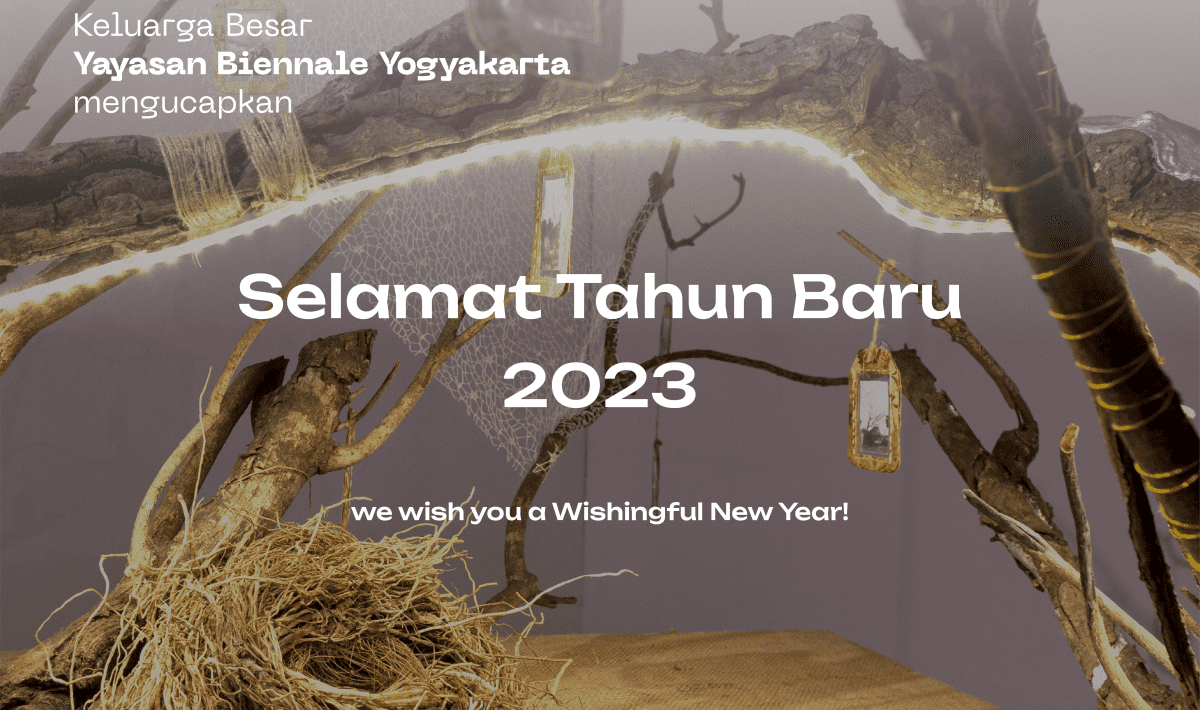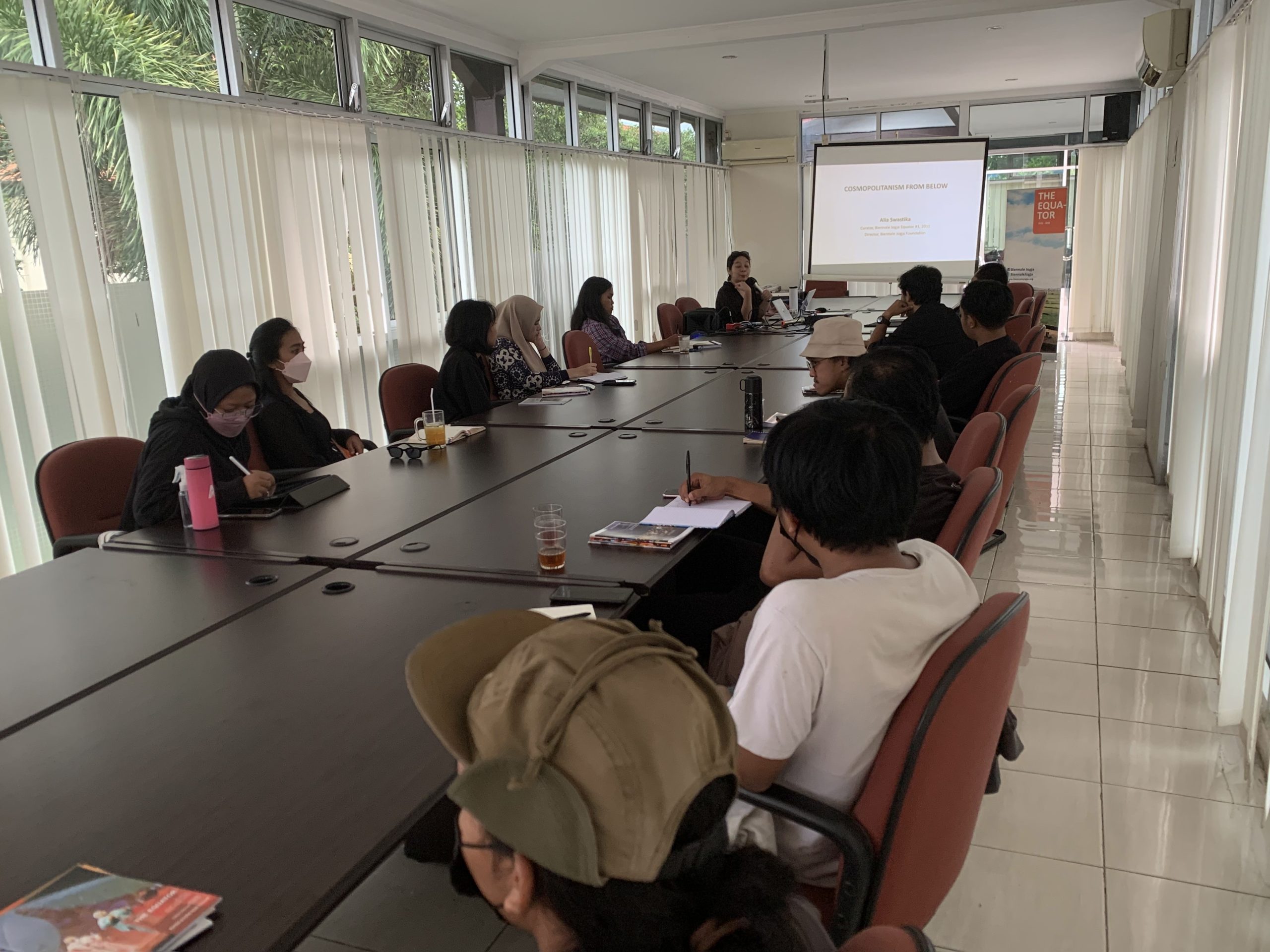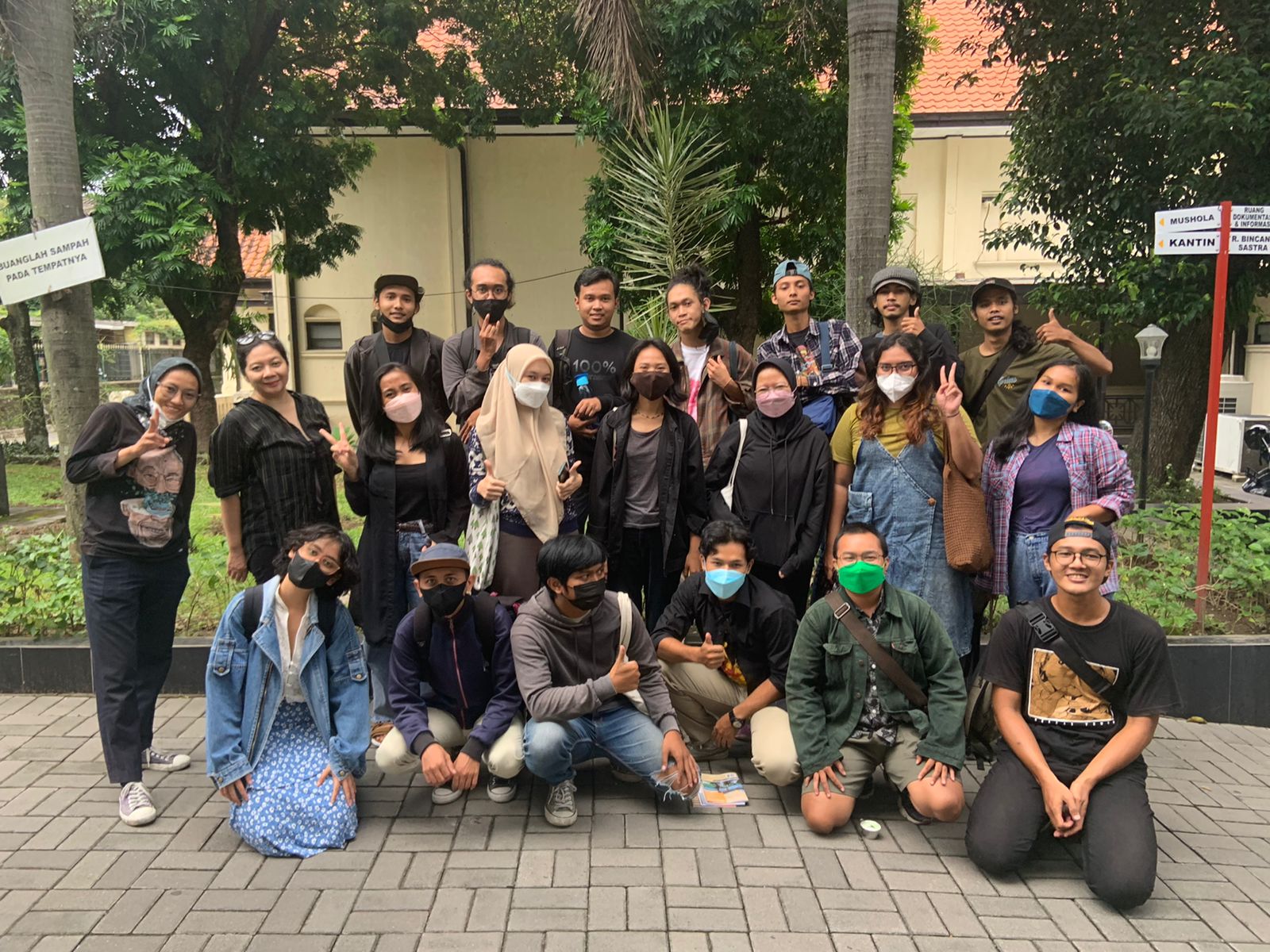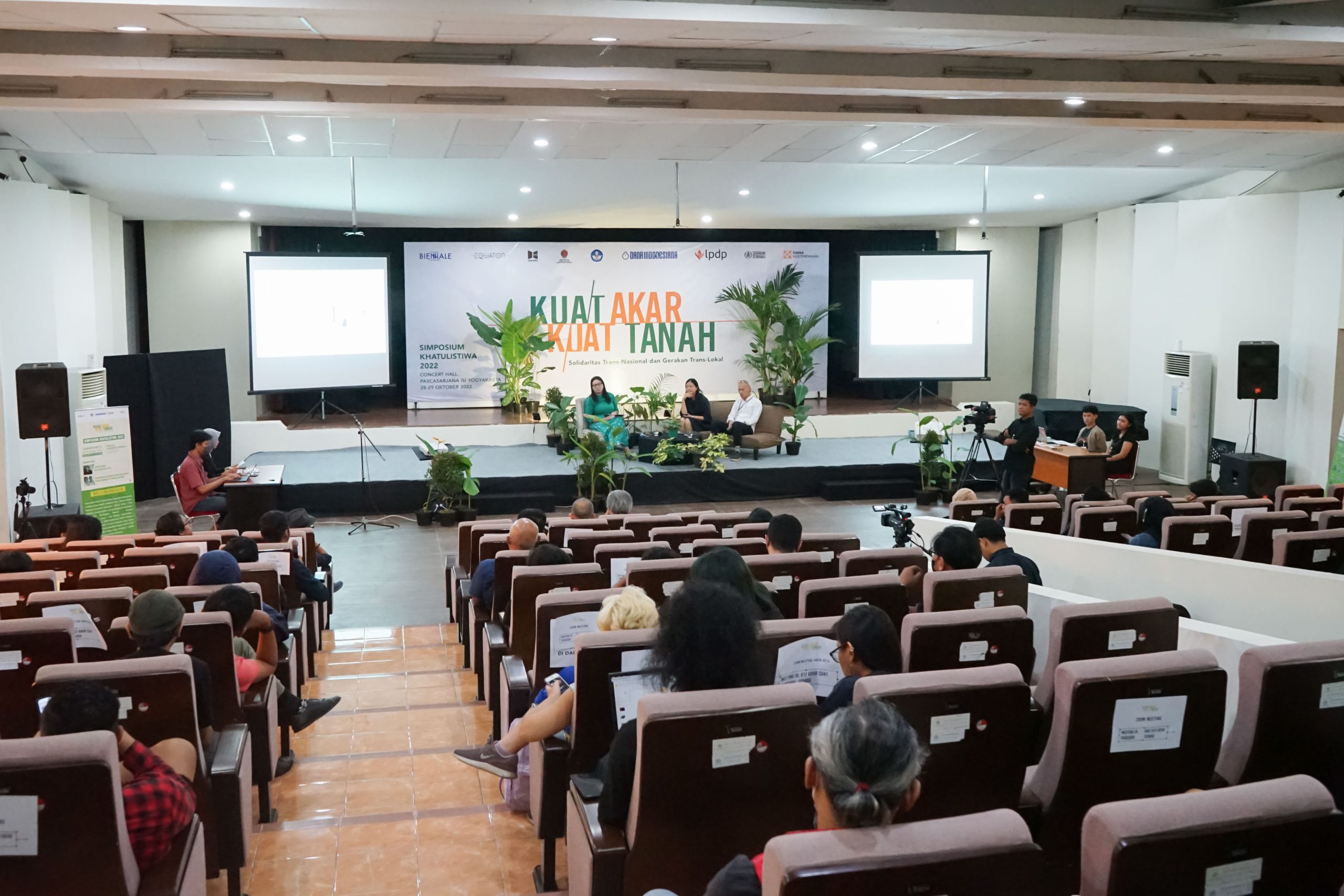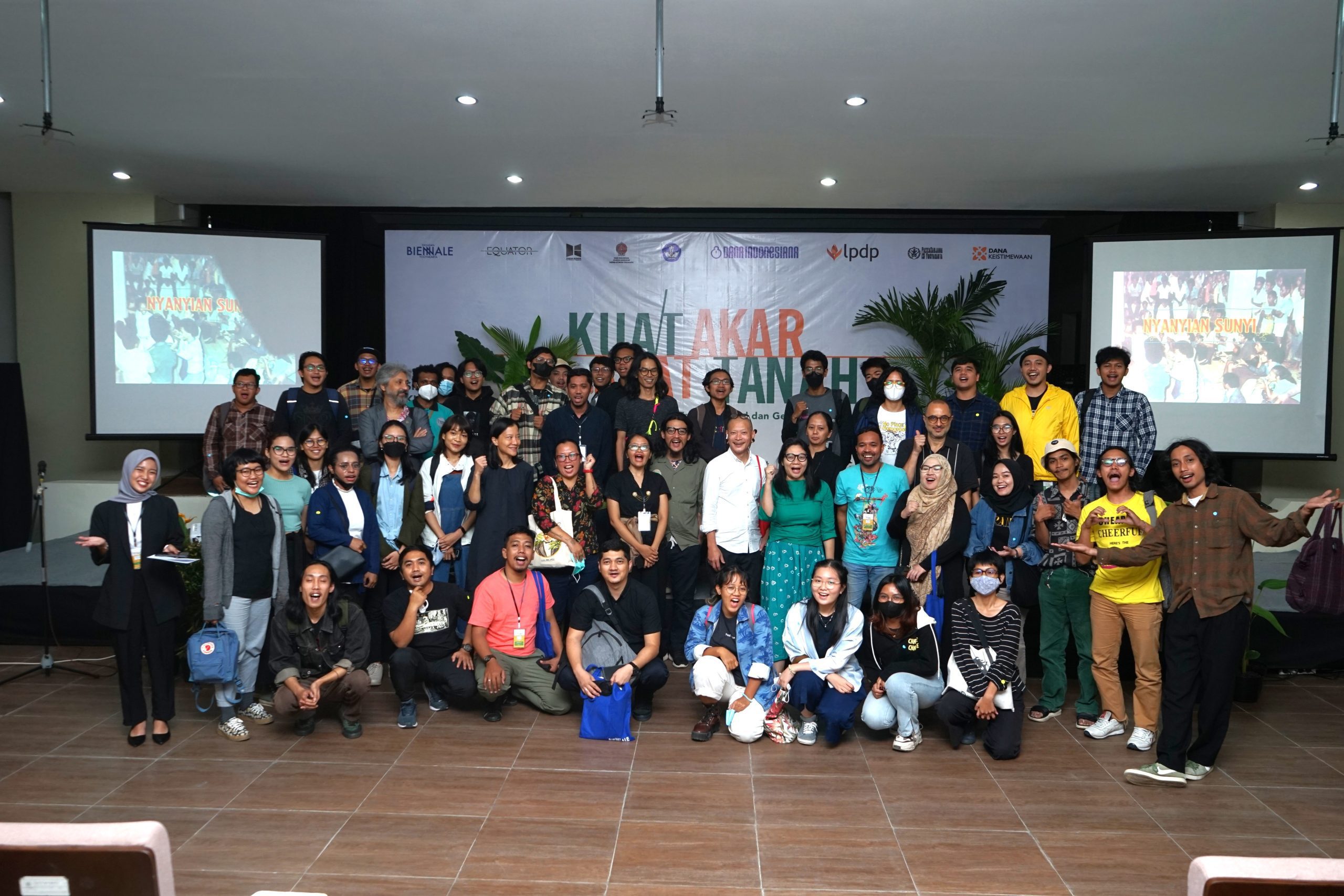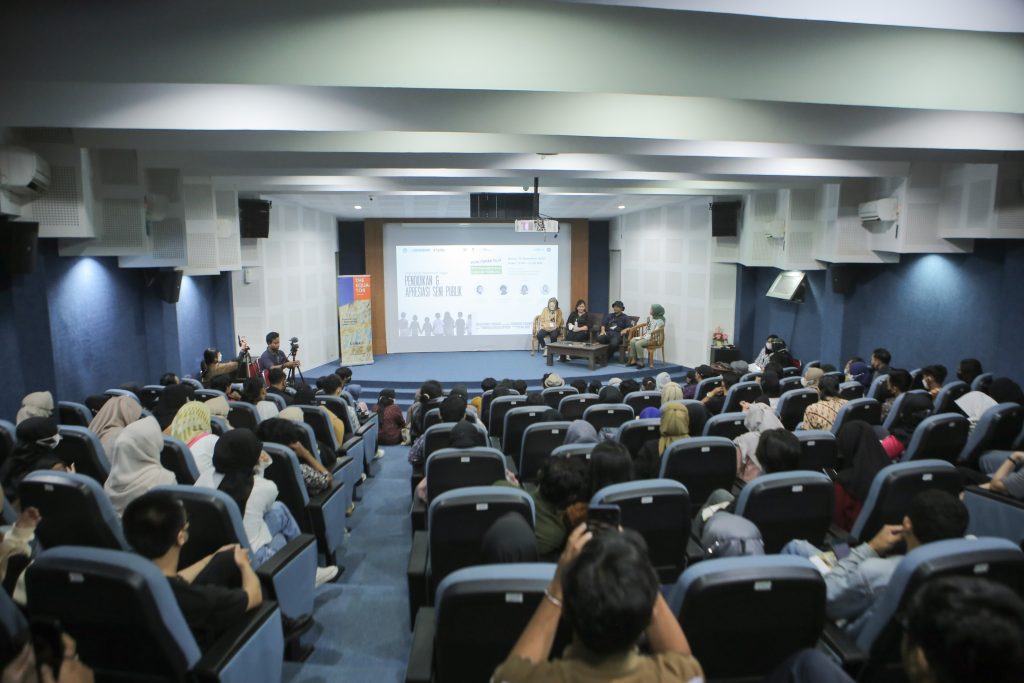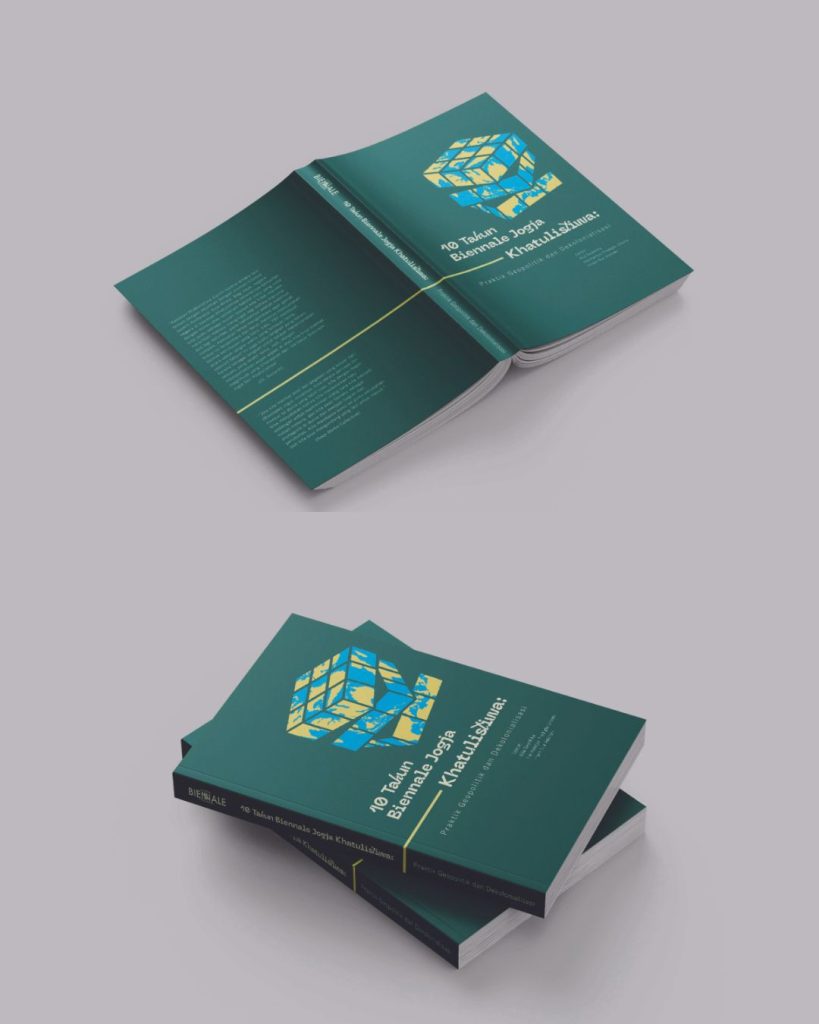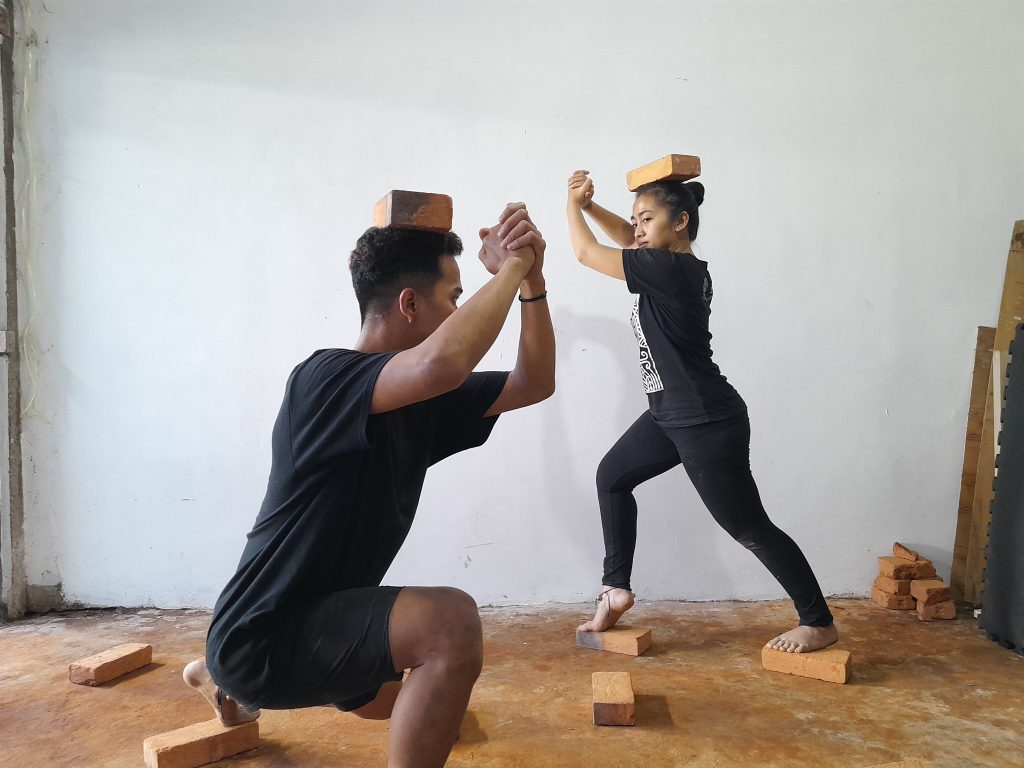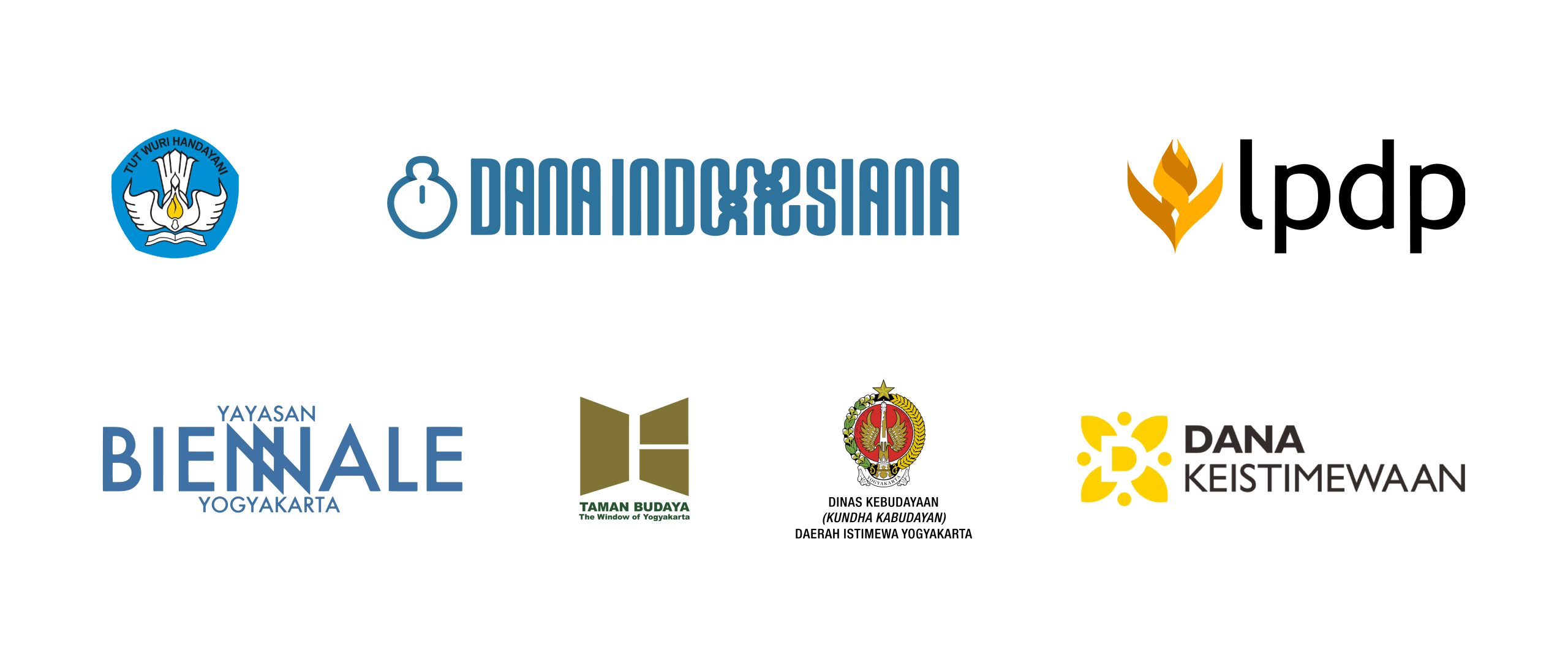We are very grateful for the great support for this wonderful 2022, which takes us to the future and a new direction for the Biennale Jogja Equator. Trust and collaboration with a variety of partners, artists and communities as well as curators, critics, media and many others, this year we have a dynamic and exciting program that has expanded the vision and opportunities to learn together.
Asana Bina Seni 2022: Silang Saling
Asana Bina Seni is an art class for young artists, curators, writers, and researchers born out of the need to discuss the vision of Biennale Jogja to the younger generation. The spirit of Biennale Jogja is very important to be instilled in the next generation of artists, literati, or curators in order to realize a more equitable global ecosystem.
Decolonization inspired every aspect of this event. In addition to decolonization, research, medium, and materiality in art; improvement of the concept of creation; and so on it will be utilized to critically examine the history of fine art and place artists in the complex world of fine art. The participants studied theories and thoughts arising from the southern global context, not the Western art canon, which is often referenced in art history. In addition to rereading curatorial practices in Asia, Africa, and other southern regions of the world, art and practice in those locations will also be read.
During class, artists and art workers have built intergenerational networks, reconsidered their practices, and created a long-term vision for their future work. For the final presentation, the artists organized an exhibition titled “Silang Saling: Titian dan Undakan” where they brought their ongoing projects to share with a wider audience. This exhibition will be held from 8-18 July 2022, at Taman Budaya Yogyakarta. Well attended by 8,000 visitors during the 10 days of the exhibition, engaged with many daily activities such as workshops, discussions, curatorial tours and others.
Equatorial Symposium 2022: Kuat Akar Kuat Tanah
The 2022 Equatorial Symposium is vital in marking a shift in the concept and working theme of the Biennale Jogja in the next few years. This symposium will facilitate the reflection of the first round of the Biennale Jogja Equator series (2011–2021) which will be the subject of discussion at the beginning of the second round of the series. The next series will begin in 2023. In addition, this symposium can be a bridge that will connect the discourses discussed at Equator I and Equator II.
The Equatorial Symposium is also significant in the face of mainstream discourse generated among scholars from academia and from activists to create collaboration between the two in the future.
The 2022 Equatorial Symposium entitled “Kuat Akar Kuat Tanah” was successfully held for two days, October 28-29 as an offline meeting and continued until November 28-29 as an online event. The two keynote speakers included Jeebesh Baghchi of the Raqs Media Collective, India and the Baan Noorg Arts Collaborative of Thailand. In the online series we also invited Hoor Al Qassimi from Sharjah Biennale, Ade Darmawan from ruangrupa and Tintin Wulia and Melati Suryodarmo from Indonesia.
As a space for the exchange of ideas and thoughts, the Equatorial Symposium seeks to keep the inclusive space from becoming an ivory tower. By collaborating with various intellectuals, artists, activists and others, it is hoped that symposium participants can actively participate in discussions and offer various perspectives according to their respective backgrounds.
Archive Presentation: Documentary Film and Discussion of Ten Years of Biennale Jogja
Throughout 2022, Biennale Jogja held a series of discussions to share the experience of organizing the Equator series to several cities from Bali, Bandung, Lampung, and Semarang. These discussions are important to bring Biennale discourse not only to big or centralized cities, but also cities that are often eliminated from the map of contemporary art in Indonesia. We work with universities, art spaces, communities, and many others.
We share our stories—from success to failure—and take notes from different audience perspectives to include in the subsequent development of our program. The discussion also included screenings of two documentaries we produced from the Biennale’s audio-visual archives.
Publication: Ten Years of the Equator and Written Works from the Equatorial Symposium
In 2022, we gathered some young writers from the Asana Bina Seni class to get involved in our publication. One of the most important publishing projects is the book Ten Years of the Biennale Jogja Equator, which collects various archives and documentation, with the contributions of various academics and researchers.
We also published a collection of papers from the Equatorial Symposium which included 20 articles from participants’ presentations, bringing various gender issues, the history of decolonization, art and activism and others.
Equatorial Artists in the Residency Program
This year we also held a residency program to connect various artists and art communities throughout the archipelago, from Western Lampung to Tidore in North Maluku. Artists are encouraged to learn from different cultural and historical contexts, engage with communities and document local knowledge with them. Six artists from various backgrounds are involved in this residency program and some of them will be presented at the Biennale Jogja 2023.
Introducing: Biennale Jogja Equator #2: Translocality and Transhistoricity: October 2023
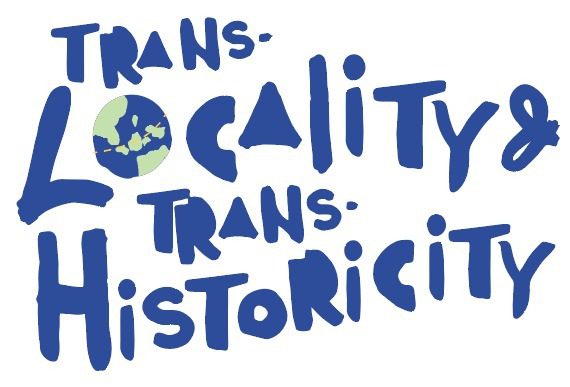
We are proud to introduce you to the theme of the next Biennale Jogja, “Translocality and Transhistoricity” which will embody our continued spirit in bringing the conversation on the trajectory of different localities and historical contexts.
The notions of translocality and transhistoricity are used to make room for other histories who share the same spirit from any region outside of the Global South. The implementation of the First Round of BJE shows us the importance of maintaining local trust and wisdom, expertise built on the philosophy of nature and life, and the sovereignty of indigenous peoples. We can learn various principles of life from the relatively communal Southern Global society and live a certain spirituality that represents their intimacy with nature. With the concept of translocality, BJE seeks to connect knowledge in one locality with another, cultural art systems based on specific customary situations, and articulation of knowledge rooted in local languages. We dream of bringing together local artists, communities, and scientists from around the world, building a platform for meeting or exchanging knowledge through arts and culture experiences.
Meanwhile, the idea of transhistoricity refers to the historical journey that inspired civil movements such as the Biennale Jogja to contribute to the change of the constellation of power in the world of fine arts. The First Round of BJE was inspired by the Asian-African Conference (KAA) movement, which later manifested into Bandung Spirit. We consider this moment as Indonesia’s success in initiating a meeting of newly independent countries in the Asian-African region. His idea goes a step further by passing on an invaluable legacy of thought, which resonates throughout Europe and America. After KAA, the movement evolved into a Non-Aligned Movement formation. The then President of Yugoslavia, Joseph Broz Tito, took part in the European initiative to form an alliance that did not favor the two superpowers (the US and the USSR). We believe that the historical timeline is a fundamental stepping stone to preserving the spirit of decolonization that underlies our efforts. It also guides us in advancing past efforts to shape possible futures.
Looking forward to next year’s collaboration with all of you, and see you again at the Second Equatorial Biennale Jogja XVII, 2023!
Happy New Year and wish you a lot of joy and happiness.
Salam
Alia Swastika
Yayasan Biennale Yogyakarta
Direktur


